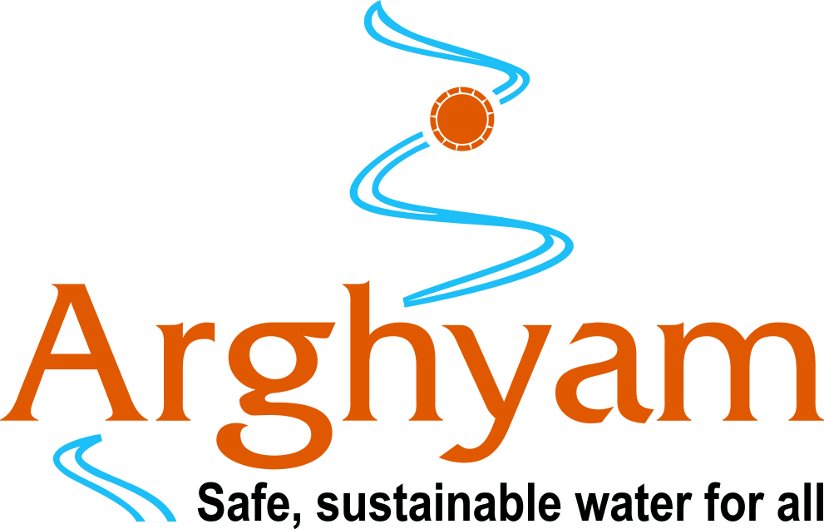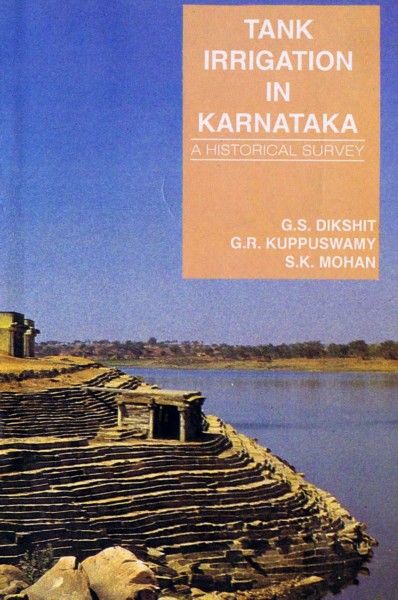/regions/karnataka
Karnataka
CDD invites applications for Training on Decentralised Wastewater Treatment System, Bangalore – Apply by March 20, 2012
Posted on 13 Feb, 2012 08:25 AMConsortium for DEWATS Dissemination (CDD) Society, a not-for-profit organisation working in the field of decentralised basic need services across India.
Living rivers, dying rivers: Rivers in the Western Ghats
Posted on 10 Feb, 2012 04:12 PMRiver stories from Maharashtra: Many morals to learn
Parineeta Dandekar’s presentation began with an account of some statistics related to Maharashtra, the third largest state in India. Regarding the state of water resources in Maharashtra, she noted that of the five river basin systems, 55 percent of the dependable yield is available in the four river basins (Krishna, Godavari, Tapi and Narmada) east of the Western Ghats. These four river basins comprise 92 percent of the cultivable land and more than 60 percent of the population in rural areas. 45 percent of the state's water resources are from west flowing rivers which are mainly monsoon specific rivers emanating from the Western Ghats and draining into the Arabian Sea.
With 1821 large dams and more in the offing, Maharashtra has the maximum dams in the country (35.7%). However, the proportion of gross irrigated area vis a vis the gross cropped area at 17.8 percent is much lower than the national average of 44.6 percent. The contradictions from the state, which is home to the highest number of dams, were discussed. In nearly 70 percent of the state’s villages (around 27,600 villages), water is either not available within 500 metres distance, or within 15 metres below ground level or when available is not potable (World Bank, Promoting Agricultural Growth in Maharashtra, Volume 1, 2003).
Dandekar discussed the World Bank funded Maharashtra Water Sector Improvement Project (MWSIP) initiated in 2005 whose main components were establishment, operationalisation and capacity building of Maharashtra Water Resources Regulatory Authority (MWRRA); establishment of river basin agencies in Maharashtra; and restructuring and capacity building of the Water Resources Department. The MWRRA Act (2005) has been amended, taking out the clause for equitable water distribution, and granting the Cabinet the rights to have the last say about water entitlements. This has led to a diversion of water for irrigation from the vulnerable, suicide-prone Vidarbha region to thermal power plants. According to Prayas, “entitlements of more than 1500 MCM have been changed from agriculture to industries and cities”.

Water quality monitoring of lakes in and around Bangalore city
Posted on 07 Feb, 2012 03:05 PMIt describes the efforts undertaken by the Karnataka State Pollution Control Board to launch a programme to monitor the water quality of some of the lakes in Bangalore so as to focus the attention of concerned governmental organisations to take up remedial measures to safe guard the water bodies of the "Garden City".
The sources of pollution in lakes are mainly identified as:
Arghyam invites applications for Project Officer for Communication & Advocacy for the GPOD Project - Apply by February 14, 2012
Posted on 02 Feb, 2012 02:36 PM
Arghyam, works in the water and sanitation sector since 2005. Our vision is “Safe, sustainable water for all”. The emphasis, of all that we do in Arghyam, is on equity and sustainability. Addressing the issues of the poor and the vulnerable in accessing water for their basic daily needs is a priority for us. Addressing these issues in a manner that is environmentally sustainable is important if the outcome is to be effective over time. We believe that the key to achieving this is in better water management which requires effective governance.
Planning as commoning - Transformation of a Bangalore lake - Paper published in the EPW
Posted on 02 Feb, 2012 11:30 AMThis paper published in the Economic and Political Weekly argues that the transformation of human settlements over time can affect the relationship between communities and commons when, for example, social geographies change from rural to urban, or from traditional systems of management to modern bureaucratic systems.
CDD invites applications for Trainer - Sanitation & Project Assistant, Bangalore - Apply by January 29, 2012
Posted on 28 Jan, 2012 10:32 AMContent courtesy: DevNetJobsIndia
![]()
Consortium for DEWATS Dissemination (CDD) Society provides technical support for basic needs services in the areas of conceptualisation, designing, quality control, certification, applied research, optimisation and dissemination of decentralised wastewater treatment technologies, developing standard procedures, creating technologies andconducting/coordinating research, training and networking. CDD aims to promote and improve the social, economic and environmental conditions of the less privileged, disadvantaged and marginalised in South Asia through the provision of decentralised basic needs services (DBNS).
Saving some last remaining free flowing rivers
Posted on 24 Jan, 2012 06:38 AMGuest post by: Parineeta Dandekar
Tank irrigation in Karnataka: A historical survey
Posted on 24 Jan, 2012 06:12 AMThe book covers entire eras from the ancient to the current period. It also gives information about the structural, financial and institutional aspects of tank construction and management.
The full book is available for download on the India Water Portal. Please right-click on the cover page image of the book, and select 'Save link as', to download the full book.
ATREE invites applications for Senior Research Associate in GIS and Remote Sensing, Bangalore
Posted on 23 Jan, 2012 10:25 AM![]()
Ashoka Trust for Research in Ecology and the Environment (ATREE) is a research institution in the areas of biodiversity conservation and sustainable development. We focus on applied science through research, education and action that influence policy and practice on conservation of nature, management of natural resources, and sustainable development.
Groundwater hydrology and groundwater quality in and around Bangalore city - Department of Mines and Geology (2011)
Posted on 19 Jan, 2012 11:04 AMEarlier studies carried out by the Department of Mines and Geology during 1994, 1995 and 2003 on the groundwater quality of Bangalore Metropolis had found that the groundwater pollution in the city has mainly been due to sewage disposal and recommendations have been made to prevent pollution from sewage and industrial wastes.

